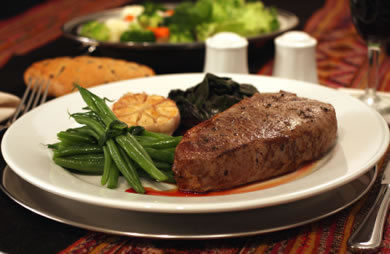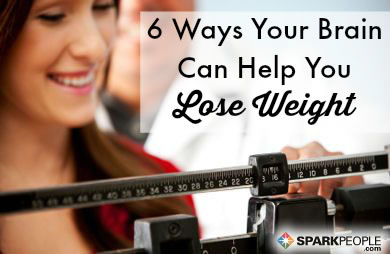|
Beginning in high school, many of my girlfriends began to call themselves "fat." They started to watch what they ate, drank diet soda, and would sometimes skip lunch (or eat very little). Now, not one of these girls was actually fat—or even slightly overweight for that matter. I didn't get it! To me, it was a bunch of drama and I paid little attention to it. I didn't think of myself as fat and I wasn't about to go on a diet. Many days, I would eat TWO school lunches (especially on pizza day!) because I was young, growing, and very active in sports, practicing for 2+ hours after school each day and lifting weights five times a week. I ate what I wanted—no matter what it was. Fast food value meals (I was the "Burger Queen"), french fries, candy, pasta—you name it. A fruit or vegetable scarcely crossed my lips, but I managed to stay fit and healthy (at least on the outside) because of my active lifestyle. These girls probably had an effect on me whether I realized it or not. If they call their tiny size-4 bodies fat—what did that mean for me at a size 8? I always did feel "bigger" than my friends. I didn't understand why my thighs were larger than theirs were or why I weighed so much more than they did. (It wasn't until many years later that I realized my height—several inches taller than most of them—and muscle mass had so much to do with it.) After high school, I developed a greater interest in nutrition and fitness. I had never paid attention to my diet before, but as I learned more about the importance of making healthy food choices, I started bypassing the junk food and fast food and chose whole grains, fruits and vegetables instead. High school sports were long over, but I continued with an exercise program five days a week with an hour of cardio (like running) and 30 minutes of weight training. It was a fun hobby—reading about healthy living, learning to eat better, and hitting the gym. Then I began to track my food on an excel spreadsheet, and because of the advice I read in magazines, I aimed for 1,200 calories per day. For the first time in my life, I started to lose weight. But more importantly—people started to notice. My life would never be the same again. To be clear, I was never overweight to begin with, but my family, friends and acquaintances started to notice how I was slimming down and I received compliments left and right. My clothes were getting looser. It didn't take much effort, and I realized that with a little more attention, I could lose even more weight and finally be "tiny" like all of my high school friends were. I relished the attention and praise, and as a bit of a perfectionist (to put it mildly), I became driven to take it further. I added another day of exercise to my week. I also added an extra hour on all the other days, in addition to a nighttime yoga video before bed. I tried to be on the move constantly, walking for an hour after dinner, exercising in front of the TV, squatting while I brushed my teeth. Every moment was a chance to double-task and burn more calories. And when I found ways to cut calories or go without food, I did. Each time I felt hungry or heard a grumble in my stomach, I felt strong and in-control, thinking about all the fat my body was burning since my stomach was empty. Reading this now, you may realize how it sounds a bit obsessive—even unhealthy. But at the time, I thought I was making good choices and being the best example of health and fitness. In a matter of months, I had dropped from my healthy size 8 to a size 4—smaller than I had ever been. I traded in my size mediums for smalls and extra smalls and bought a string bikini to wear to the pool. People at the gym began to tell me that I should be a model. I felt healthy, fit and confident—I was on top of the world! The funny thing is, no one thought this was abnormal. I was not skeletal or anorexic—a body type that most people notice as a red flag that something was wrong. I looked really fit and toned—like many celebrities whose bodies we often envy. I was not starving myself. I just controlled my calories and chose healthy foods. When I visited two doctors before heading off to college, neither one was concerned about my weight loss—or even that my period had stopped for several months—so neither was I. It probably didn’t set off any alarms because I looked healthy and was still within the healthy weight range for my height. But all the warning signs were there. I didn't know it then, but I really was hurting my body—and my mind. To reach that ideal size 4, I had to go hungry, eating fewer than 1,200 calories every day, and exercise for more than 2-3 hours a day. To maintain it, I had to keep up with the same routine. It wasn't until I got to college that my new "lifestyle" became impossible to maintain. I couldn't exercise for hours. I couldn't cook or eat the way I wanted. And I couldn't continue going hungry any longer. My body was not comfortable as a size 4. How do I know? Because getting there and staying there was nearly impossible. With the stress of college, I hit my breaking point. Instead of going hungry, which I had done for months, I ate everything in sight—even when I wasn't hungry! I stopped exercising almost completely. I rebelled, and I gained back all of the weight I had lost—and then some. I never had a weight problem in my life, and now here I was, bigger than I had ever been. I needed to shop for bigger and bigger clothes. None of my tiny, new clothes fit—and none of the clothes I wore before fit either. I felt miserable, but it wasn't just because of my increased girth, which made me self-conscious and depressed. It is one thing to lose weight in a healthful way when you need to for your health or your own comfort level (and I did need to now, for I was overweight for the first time in my life). It's another thing to force your body to become something that it's not, especially when you're already fit and healthy. A "healthy weight" for your height is a range—not a single number—for a reason. You do not have to be at the bottom of the range to be healthy or fit. Sometimes, your "happy weight" (different then "healthy" weight, I define this as natural, comfortable and easy for you to maintain without killing yourself to do so) will be at the top of the range—that's where I am—maybe even slightly above or below it. It's just a chart. It doesn't really know YOU or what is best for you, so take it with a grain of salt. If you feel happy, confident, healthy and fit, then who cares what a scale or a chart has to say? It took a few years of self-discovery for me to realize what I had done and what was really going on under the surface, the issues I had to deal with to stop obsessing over food or going to extremes with exercise. It took just as long for me to return to my happy weight. And what do you know, I settled back in to the size 8 I wore as a teenager—when I never watched what I ate or counted calories at all. Looking ahead, I see a life that is filled with meaning, memories and the occasional slice of chocolate cake. Unlike that size 4, this is something I can maintain without depriving myself of any foods or exercising at every spare moment. This is something I can maintain even if I miss a few workouts or overindulge in wedding cake at a reception (as I did last weekend!). I may not match the "ideal" in my mind, but my body knows best, and I'm not willing to fight with it anymore. When I look back on my life, I realize now that being "thin" really didn't change my life or my level of happiness. It got me more attention, sure, but I was still the same person, searching for something that no amount of weight loss could help me find. For me, living the size-4 life wasn't all that it was cracked up to be. Do you think your life would be better if you were thin? Have you found your own happy weight? |
Popular EntriesMore From SparkPeople
|




.jpg)


.png)








.jpg)


